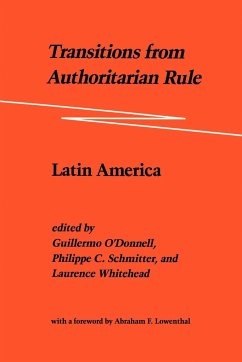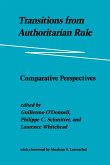An array of internationally noted scholars examines the process of democratization in southern Europe and Latin America. They provide new interpretations of both current and historical efforts of nations to end periods of authoritarian rule and to initiate transition to democracy, efforts that have met with widely varying degrees of success and failure. Extensive case studies of individual countries, a comparative overview, and a synthesis conclusions offer important insights for political scientists, students, and all concerned with the prospects for democracy. Southern Europe The historical example of Italy after Mussolini as well as the more recent cases of Greece, Portugal, Spain, and Turkey suggest factors that may make a transition relatively secure. Latin America Democratization is perhaps the central issue in Latin American politics today. Case studies focus on Argentina, Bolivia, Brazil, Chile, Mexico, Peru, Uruguay and Venezuela. Comparative Perspectives Despite the unique contexts of transitions in individual countries, significant points of comparison emerge -- such as the influence of foreign nations and the role of agents outside the government. These analyses explore both intra- and interregional similarities and differences. Tentative Conclusions about Uncertain Democracies Political democracy is not the only possible outcome of transitions from authoritarianism. Guillermo O'Donnell and Philippe C. Schmitter draw out the implications of democracy as a goal and of the uncertainty inherent in transitional situations.
Hinweis: Dieser Artikel kann nur an eine deutsche Lieferadresse ausgeliefert werden.
Hinweis: Dieser Artikel kann nur an eine deutsche Lieferadresse ausgeliefert werden.








